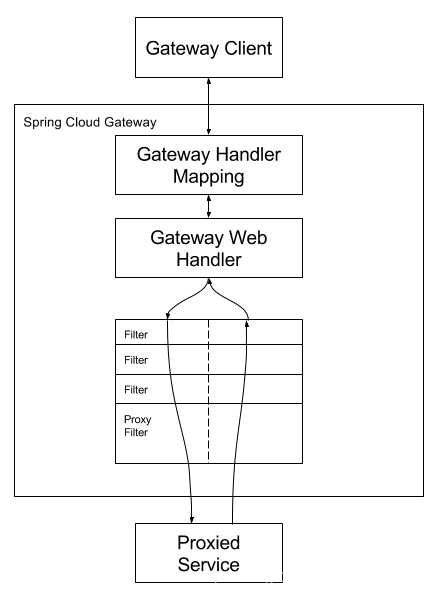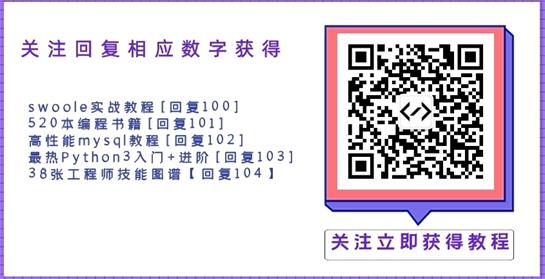问题背景
将原有项目中的websocket模块迁移到基于SpringCloud Alibaba的微服务系统中,其中网关部分使用的是gateway。
问题现象
迁移后,我们在使用客户端连接websocket时报错:
io.netty.handler.codec.http.websocketx.WebSocketHandshakeException: Invalid subprotocol. Actual: null. Expected one of: protocol
...
同时,我们还有一个用py写的程序,用来模拟客户端连接,但是程序的websocket连接就是正常的。
解决过程
1 检查网关配置
先开始,我们以为是gateway的配置有问题。
但是在检查gateway的route配置后,发现并没有问题。很常见的那种。
...
gateway:
routes:
#表示websocket的转发
- id: user-service-websocket
uri: lb:ws://user-service
predicates:
- Path=/user-service/mq/**
filters:
- StripPrefix=1
其中,lb指负载均衡,ws指定websocket协议。
ps,如果,这里还有其他协议的相同路径的请求,也可以直接写成:
...
gateway:
routes:
#表示websocket的转发
- id: user-service-websocket
uri: lb://user-service
predicates:
- Path=/user-service/mq/**
filters:
- StripPrefix=1
这样,其他协议的请求也可以通过这个规则进行转发了。
2 跟源码,查找可能的原因
既然gate的配置没有问题,那我们就尝试从源码的角度,看看gateway是如何处理ws协议请求的。
首先,我们要对“gateway是如何工作的”有个大概的认识:

可见,在收到请求后,要先经过多个Filter才会到达Proxied Service。其中,要有自定义的Filter也有全局的Filter,全局的filter可以通过GET请求/actuator/gateway/globalfilters来查看
{
"org.springframework.cloud.gateway.filter.LoadBalancerClientFilter@77856cc5": 10100,
"org.springframework.cloud.gateway.filter.RouteToRequestUrlFilter@4f6fd101": 10000,
"org.springframework.cloud.gateway.filter.NettyWriteResponseFilter@32d22650": -1,
"org.springframework.cloud.gateway.filter.ForwardRoutingFilter@106459d9": 2147483647,
"org.springframework.cloud.gateway.filter.NettyRoutingFilter@1fbd5e0": 2147483647,
"org.springframework.cloud.gateway.filter.ForwardPathFilter@33a71d23": 0,
"org.springframework.cloud.gateway.filter.AdaptCachedBodyGlobalFilter@135064ea": 2147483637,
"org.springframework.cloud.gateway.filter.WebsocketRoutingFilter@23c05889": 2147483646
}
可以看到,其中的WebSocketRoutingFilter似乎与我们这里有关
public Mono<Void> filter(ServerWebExchange exchange, GatewayFilterChain chain) {
this.changeSchemeIfIsWebSocketUpgrade(exchange);
URI requestUrl = (URI)exchange.getRequiredAttribute(ServerWebExchangeUtils.GATEWAY_REQUEST_URL_ATTR);
String scheme = requestUrl.getScheme();
if (!ServerWebExchangeUtils.isAlreadyRouted(exchange) && ("ws".equals(scheme) || "wss".equals(scheme))) {
ServerWebExchangeUtils.setAlreadyRouted(exchange);
HttpHeaders headers = exchange.getRequest().getHeaders();
HttpHeaders filtered = HttpHeadersFilter.filterRequest(this.getHeadersFilters(), exchange);
List<String> protocols = headers.get("Sec-WebSocket-Protocol");
if (protocols != null) {
protocols = (List)headers.get("Sec-WebSocket-Protocol").stream().flatMap((header) -> {
return Arrays.stream(StringUtils.commaDelimitedListToStringArray(header));
}).map(String::trim).collect(Collectors.toList());
}
return this.webSocketService.handleRequest(exchange, new WebsocketRoutingFilter.ProxyWebSocketHandler(requestUrl, this.webSocketClient, filtered, protocols));
} else {
return chain.filter(exchange);
}
}
以debug模式跟踪到这里后,可以看到,客户端请求中,子协议指定为“protocol”。
netty相关:
WebSocketClientHandshakerWebSocketClientHandshakerFactory
这段烂尾了。。。
直接看结论吧
最后发现出错的原因是在netty的WebSocketClientHandshanker.finishHandshake
public final void finishHandshake(Channel channel, FullHttpResponse response) {
this.verify(response);
String receivedProtocol = response.headers().get(HttpHeaderNames.SEC_WEBSOCKET_PROTOCOL);
receivedProtocol = receivedProtocol != null ? receivedProtocol.trim() : null;
String expectedProtocol = this.expectedSubprotocol != null ? this.expectedSubprotocol : "";
boolean protocolValid = false;
if (expectedProtocol.isEmpty() && receivedProtocol == null) {
protocolValid = true;
this.setActualSubprotocol(this.expectedSubprotocol);
} else if (!expectedProtocol.isEmpty() && receivedProtocol != null && !receivedProtocol.isEmpty()) {
String[] var6 = expectedProtocol.split(",");
int var7 = var6.length;
for(int var8 = 0; var8 < var7; ++var8) {
String protocol = var6[var8];
if (protocol.trim().equals(receivedProtocol)) {
protocolValid = true;
this.setActualSubprotocol(receivedProtocol);
break;
}
}
}
if (!protocolValid) {
throw new WebSocketHandshakeException(String.format("Invalid subprotocol. Actual: %s. Expected one of: %s", receivedProtocol, this.expectedSubprotocol));
} else {
......
}
}
这里,当期望的子协议类型非空,而实际子协议不属于期望的子协议时,会抛出异常。也就是文章最初提到的那个。
3 异常原因分析
客户端在请求时,要求子协议为“protocol”,而我们的后台websocket组件中,并没有指定使用这个子协议,也就无法选出使用的哪个子协议。因此,在走到finishHandShaker时,netty在检查子协议是否匹配时抛出异常WebSocketHandshakeException。 py的模拟程序中,并没有指定子协议,也就不会出错。
而在springboot的版本中,由于我们是客户端直连(通过nginx转发)到websocket服务端的,因此也没有出错(猜测是客户端没有检查子协议是否合法)。。。
解决方法
在WebSocketServer类的注解@ServerEndpoint中,增加subprotocols={“protocol”}
@ServerEndpoint(value = "/ws/asset",subprotocols = {"protocol"})
随后由客户端发起websocket请求,请求连接成功,未抛出异常。
与客户端的开发人员交流后,其指出,他们的代码中,确实指定了子协议为“protocol”,当时随手写的…
心得
- 定位问题较慢,中间走了不少弯路。有优化的空间;
- 对gateway的模型有了更深刻的理解;
- idea 可以用双击Shift键来查找所有类,包括依赖包中的。
以上为个人经验,希望能给大家一个参考,也希望大家多多支持自学编程网。

- 本文固定链接: https://zxbcw.cn/post/221624/
- 转载请注明:必须在正文中标注并保留原文链接
- QQ群: PHP高手阵营官方总群(344148542)
- QQ群: Yii2.0开发(304864863)
